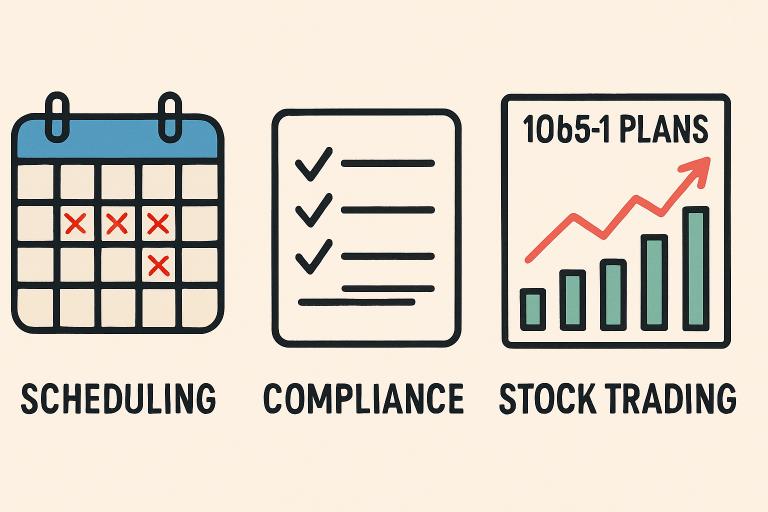Now Reading: Ways to Grow Your Career as a Caregiver
-
01
Ways to Grow Your Career as a Caregiver
Ways to Grow Your Career as a Caregiver

Key Takeaways
- Invest in continuous learning to remain relevant and knowledgeable.
- Network within the industry to unlock new career possibilities.
- Focus on self-care to maintain energy and effectiveness.
Embarking on a career as a caregiver means stepping into a world of opportunity, compassion, and lifelong learning. The caregiving profession, while demanding, is incredibly rewarding—offering a sense of purpose that few other fields can provide. Whether you’re new to the field or looking for ways to grow, finding creative strategies to strengthen your career will set you apart—opening doors to higher responsibilities and greater satisfaction. Pursuing fresh approaches for professional development is especially important in caregiving, as it is a field that is rapidly evolving to meet the unique and shifting needs of clients and families. For those seeking positions or advancement in this rewarding sector, there are valuable resources like Beacon specialized caregiver jobs that can help launch or elevate your career.
Today’s caregiving roles demand more than just dedication—they require adaptability, communication skills, and ongoing development. Employers consistently look for team members who are not only caring but are adaptable, strong problem solvers, and lifelong learners. From upgrading your skills and networking with peers to embracing digital solutions, expanding your horizons can have a dramatic effect on both your job prospects and personal fulfillment. Building a career as a caregiver is therefore about more than showing up for shifts; it’s about growth, visibility, and realizing your full potential. The following strategies not only enhance your skills but also boost your visibility as a professional in a field that’s increasingly vital to society’s overall well-being.
Pursue Continuous Education
Caregiving is a dynamic field, and the importance of staying up-to-date with the latest best practices cannot be overstated. Because medical technology, treatment protocols, and care strategies continually evolve, it’s easy to fall behind without a commitment to learning. Whether you are obtaining certifications in areas like dementia care, palliative support, wound management, or simply attending relevant workshops, investing in ongoing education gives you an edge. According to the AARP guide on hiring caregivers, continuous learning is one of the most effective ways to provide improved care and stand out to employers looking for specialized knowledge.
Taking advantage of free online courses, seminars, and webinars can expand your understanding of both technical and soft skills central to the job—from medical procedures and medication management to communication techniques and crisis response. These educational opportunities not only broaden your competence but also boost your confidence when facing new or challenging situations. Major industry associations, as well as local community colleges, often offer continuing education resources specifically tailored for caregivers. The benefits are two-fold: you become better at your job, and you demonstrate initiative and professionalism to employers and clients alike.
Expand Your Professional Network
Building relationships with other professionals in the healthcare and caregiving sectors can lead to valuable opportunities, advice, and support. Networking goes beyond simple acquaintance—it is about forming genuine connections that can open doors to new positions, collaborations, or even new friendships. Attending conferences or joining established caregiver associations will keep you informed about industry trends, innovative care methods, and legislative updates that affect your work. These experiences also bring you in contact with experienced colleagues who may provide job leads, mentorship, or referrals that can help you climb the career ladder.
Online communities, particularly those on platforms like Facebook and LinkedIn, are also an invaluable resource for connecting with peers nationwide. These forums allow you to ask questions, share insights, and seek encouragement from those who understand the unique challenges of caregiving. Networking isn’t just about job openings—it’s also about exchanging ideas, sharing challenges, and celebrating successes in a sometimes isolating field. Over time, a robust network can help you navigate the ups and downs of your career with wisdom and support.
Specialize in a Niche Area
Specializing in a certain facet of caregiving, whether it’s working with clients with mobility impairments, chronic conditions, or children, can greatly enhance your career. Employers frequently seek caregivers with focused skill sets for higher-need cases, as specialized knowledge translates to a higher standard of patient care. Start by identifying your passion—perhaps it’s supporting individuals with Alzheimer’s, working with terminally ill patients, or caring for young children with special needs. Seek out additional certifications, seminars, or hands-on experience to build confidence and credibility in that area.
Niche expertise is often associated with higher pay and increased job security, since specialized caregivers are in high demand. These specialty roles—such as hospice care, memory care, or pediatric health—are growing as populations age and healthcare needs become more complex. Focusing on a niche also distinguishes you within the field, often making you a go-to person for unique or challenging cases.
Build a Strong Digital Presence
In today’s connected world, caregivers who present a strong, professional digital image are more likely to be noticed by potential employers and collaborators. Start with a polished LinkedIn profile that details your skills, achievements, and ongoing education. A clear, current photo, professional summary, and up-to-date certifications highlight your commitment to the field. Share articles, comment on industry trends, or participate in discussions related to elder care, child care, or special care needs to build your reputation within the digital caregiving community.
Having an up-to-date online presence also makes it easier for recruiters and companies to find you, especially for higher-level positions or specialized roles. Employers often search for potential candidates online before reaching out. Don’t neglect professional social networks—engage meaningfully, highlight your expertise, and learn from others’ experiences in the field. This visibility not only opens up job opportunities but also connects you with thought leaders and innovative practices that can further boost your career.
Seek Mentorship Opportunities
Participating in a formal or informal mentorship program can provide invaluable guidance and support. Experienced caregivers have deep industry insights and are often happy to guide newcomers in areas like challenging cases, career planning, or skill development. These relationships can help you avoid common pitfalls, accelerate your learning, and gain confidence as you take on new responsibilities. Don’t hesitate to introduce yourself to supervisors, trainers, or seasoned colleagues who can provide feedback and encouragement as you progress in your career.
Prioritize Self-Care
Caregivers face unique physical, emotional, and mental demands. It’s critical to develop and maintain self-care routines so that you remain resilient and effective in your role. Managing stress, ensuring adequate rest, and pursuing hobbies outside of work are essential habits for long-term career health. Exercise, meditation, social time, or quiet reflection all contribute to better well-being.
Remember, taking care of your own health directly translates into better quality care for those you serve. Consider regular check-ins with mental health professionals or joining caregiver support groups to foster a balanced approach to both work and personal life. Prioritizing self-care will not only prevent burnout but also enrich your professional enthusiasm and compassion.
Engage in Volunteering
Spending time in volunteer caregiving settings allows you to gain hands-on experience and see different aspects of the profession without the pressure of a formal job. Volunteering also shows employers your dedication and passion for the field and can expand your network to include organizations, professionals, and families in need of support. Look for opportunities in community programs, local hospitals, hospices, nursing homes, or non-profit agencies focused on care. Volunteering may also introduce you to new specialties you hadn’t considered before, or offer you a chance to develop leadership and organizational skills.
Embrace Technological Tools
The caregiving profession is ever-evolving, with new technological advancements making work safer and more efficient. Becoming proficient in using digital scheduling apps, electronic health record systems, and telehealth tools is highly valued by employers and increases your effectiveness. Being tech-savvy streamlines daily routines, reduces administrative burden, and keeps you competitive in an increasingly digital workplace.
Leverage technology to further your education, streamline patient care, and collaborate seamlessly with colleagues—aligning yourself with innovation for continuous career growth. From learning management systems to communication platforms, technology can lighten your workload and help you focus on what you do best: compassionate caregiving.
Final Thoughts
Growing your career as a caregiver is a journey rooted in compassion, adaptability, and lifelong learning. The most successful caregivers are those who view professional development not as an obligation, but as an opportunity—to expand their knowledge, enhance their skills, and deepen their impact on the lives they touch. Whether through continued education, mentorship, or embracing technology, each step toward growth strengthens both your career and your ability to deliver exceptional care.
By investing in yourself, prioritizing self-care, and staying connected with the caregiving community, you’ll not only advance professionally but also find renewed purpose and fulfillment in your work. Remember—your dedication makes a lasting difference in the lives of others, and every effort to improve is a step toward becoming the best version of yourself as a caregiver.





















